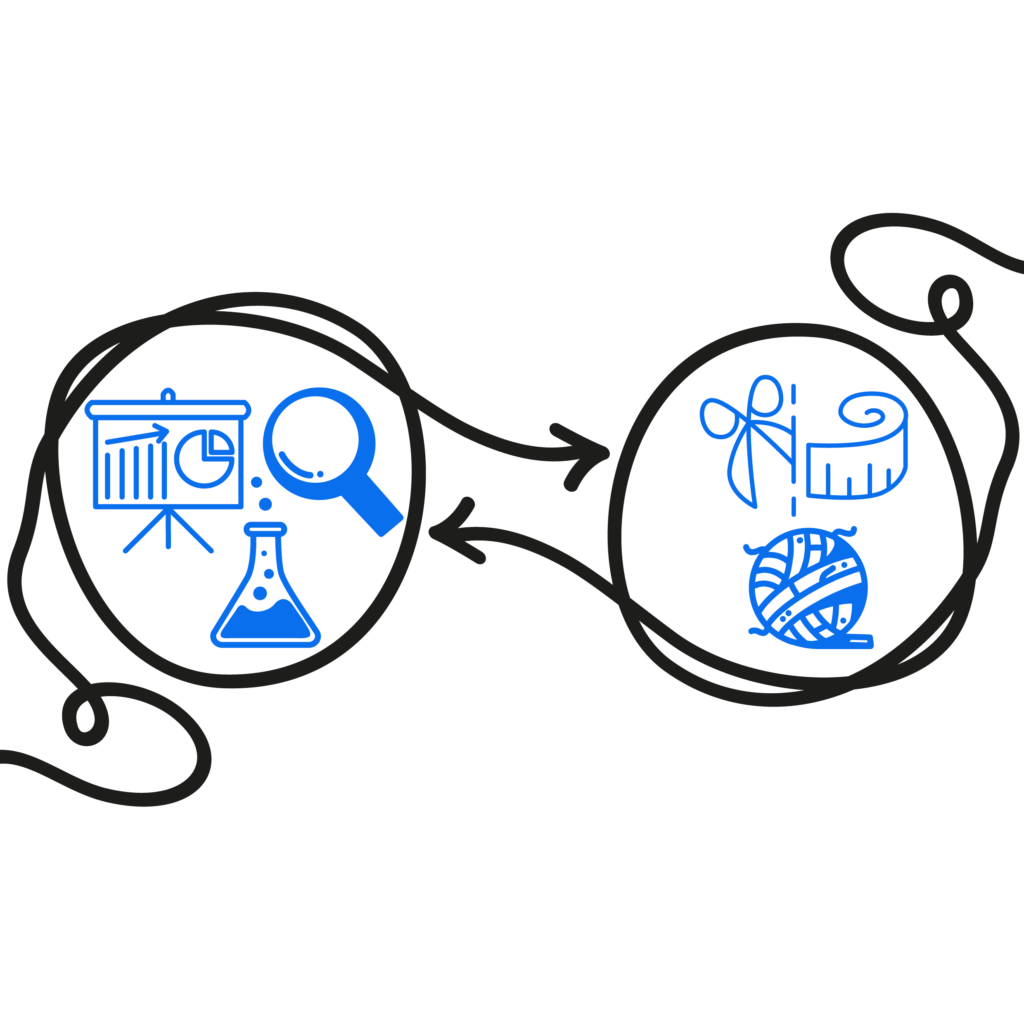
An Impact Innovation Funded Project

Priority Area:
Circular Knowledge Systems
Scaling Circularity: classifying product inventories to accelerate design for recyclability
Current fibre-to-fibre recycling technologies require high-quality feedstock to be effective. Apparel not designed with recycling in mind results in poor-quality feedstock, making recycling processes more costly and wasteful. The Scaling Circularity project aims to assess the volume of recyclable apparel from UK brands and estimate emissions savings from recycling through existing systems. By analyzing non-recyclable apparel and identifying design improvements, the project will develop a system to guide product design for recyclability. This research will link garment design with recycling capabilities in the UK and EU, promoting circular design practices through workshops and ultimately enhancing textile recycling quality and reducing reliance on virgin resources.

Dr. Laetitia Forst
Research Associate
Laetitia has experience bridging design and life cycle assessment work, exemplified through the UAL EU Horizon 2020 HEREWEAR project, and reinforced in collaboration with WRAP’s Textile 2030 team. Her background knowledge in textile design for circularity delivers concrete recommendations in the context of design-focused projects.
Name of Lead Applicant:
Job Title:
Organisation:
Additional Team Members:
Laetitia Forst
Research Associate
University of the Arts London
Kate Goldsworthy, Professor of Circular Design and Innovation (UAL)
Tim Cross, CEO (The Circular Textiles Foundation)
Jenny Valarino, Head of Circular Design (The Circular Textiles Foundation)
Hannah Hamlin, Senior Circular Designer (The Circular Textiles Foundation)
Padouk Fielding, Head of Brand Partnerships (The Circular Textiles Foundation)
This project introduces a collaborative approach to addressing the complexities of recycling in the fashion industry by assembling a multidisciplinary team from academia and industry. The team includes the University of the Arts London’s (UAL) Fashion, Textiles and Technology Institute (FTTI), which combines expertise in sustainable fashion design, data science, and cutting-edge technology, and the Circular Textiles Foundation (CTF), a non-profit focused on circularity and recycling certification. The project aims to work directly with UK apparel brands to develop an inventory analysis tool, analyze product recyclability, and conduct Design for Recyclability workshops. UAL will lead the development of the analysis tool and case studies, while CTF will manage the workshops and brand engagement, leveraging their experience in recycling and industry partnerships to drive the project’s goals.
This project aims to integrate circularity into fashion design and manufacturing by analysing detailed inventory data from brands. It will provide insights into current and potential recycling feedstock, supporting the adoption of circular design on a larger scale. The initiative fosters collaboration among fibre-to-fibre recyclers, garment manufacturers, and brands to advance UK and EU textile recycling by promoting innovative design strategies, enhancing feedstock quality, and supporting recycling technology development. The Circular Textiles Foundation (CTF) stands to benefit commercially through expanded industry networks, increased membership and consultancy opportunities, and the integration of the inventory analysis tool into training programs for brands.
Expected start date: 1st September 2024
Expected end date: 31st August 2025
Project duration: 12 months